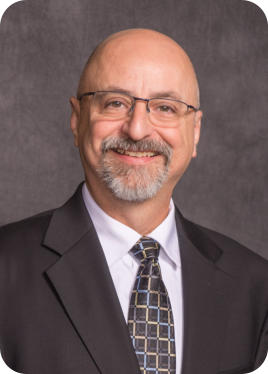“Good philosophy must exist, if for no other reason, because bad philosophy needs to be answered.” C. S. Lewis
Richard G. Howe, Ph.D.
Curriculum Vitae here. Shorter Bio Richard G. Howe is a writer as well as a public speaker and debater in churches, conferences, and university campuses on issues concerning Christian apologetics and philosophy. He is Norman L. Geisler Chair of Christian Apologetics at Southern Evangelical Seminary in Rock Hill, South Carolina where he also serves as Professor of Philosophy and Apologetics and as the Provost. Dr. Howe is Past President of the International Society of Christian Apologetics. In their free time, Richard and his wife Rebekah enjoy international travel. Longer Bio Dr. Howe has a BA in Bible from Mississippi College, an MA in Philosophy from the University of Mississippi, and a PhD in Philosophy from the University of Arkansas. Both his master's thesis and doctoral dissertation focused on the issue of the existence of God. His master’s thesis is titled “An Analysis of William Lane Craig’s Kalam Cosmological Argument” in which Dr. Howe defended the argument against objections that had come out against the argument subsequent to the publishing of Dr. Craig’s important book on the subject. Dr. Howe’s doctoral dissertation is titled “A Defense of Thomas Aquinas’s Second Way” in which he defended Aquinas’s efficient causality argument for the existence of God in three areas: (1) against criticisms of theistic arguments in general (2) against criticisms of causal theistic arguments more narrowly (3) against specific criticisms to Aquinas’s version of the efficient causality argument for God’s existence—the second of Aquinas’s famous “Five Ways.” The key to this last line of defense is understanding Aquinas’s notion of esse, the primacy of esse in his metaphysics, the essence/existence distinction, and his doctrine of how the essence/existence distinction does not obtain in God (which is to say that God is His own act of existing). Thomists will recognize this as “Gilsonian” Existential Thomism, following the thinking of philosophers Etienne Gilson. Once these metaphysical notions are properly in place, then Aquinas’s theistic arguments (focusing on the “Second Way”) can be put in their proper context and rightly interpreted. Dr. Howe shows that almost all of the objections to the argument fail to rightly interpret the argument precisely because they fail to understand the metaphysical context in which the argument is situated. Dr. Howe is the author of the workbook curriculum and DVD Intro to God’s Revelation, an exploration and study of the doctrines of General Revelation and Special Revelation including inspiration, inerrancy, canonicity, transmission, translation, interpretation, and application. He is co-author with Dr. Norman L. Geisler of The Religion of the Force and is a contributor to several books including: Truth: Lectures from Defend the Faith 2025 The Morality Wars: The Ongoing Debate Over the Origin of Human Goodness Answering the Music Man: Dan Barker’s Arguments against Christianity The Comprehensive Guide to Science and Faith: Exploring the Ultimate Questions about Life and rhe Cosmos The Comprehensive Guide to Apologetics I Am Put Here for the Defense of the Gospel: Dr. Norman L. Geisler: A Festschrift in His Honor The Jesus Quest: The Danger from Within The Popular Encyclopedia of Apologetics Reasons for Faith: Making a Case for the Christian Faith To Everyone an Answer: A Case for the Christian Worldview. He has had articles published in the Christian Apologetics Journal, the Areopagus Journal, the Midwest Christian Outreach Journal, Journal for Baptist Theology and Ministry, and the Christian Research Journal. He has spoken and/or debated in churches and universities in the US and Canada as well as Europe and Africa on issues relating to the defense of the Christian faith.

Institutions are listed for identification purposes only. Website © 2025 Richard G. Howe, Ph.D.


















